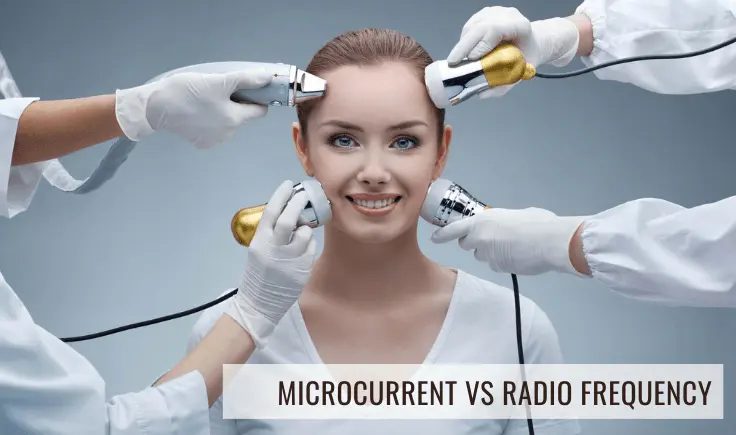
10 Best Products For Milia In Singapore For Every Budet
Editor’s Choice NEOSTRATA GLYCOLIC RENEWAL Smoothing Lotion CHECK LATEST PRICE 2nd Best Choice Peter Thomas
Falsies or mascara? Tinted moisturizer or foundation? Microcurrent or radio frequency? These crowd-splitting questions can divide party guests any day of the week, but does it just boil down to personal preferences, or is there a right answer? While we can’t have a say in what you should opt for for your makeup look, we might be able to help you figure out which skin-firming treatment is ideal for you.

Radio frequency is used to accelerate collagen production and to deliver a taut appearance on the face and body. It does so by safely interacting with key skin cells and tissues catalysing a kinetic heat, this then prompts the skin to naturally generate new collagen fibres and more of the skin’s natural plumping and hydrating agent—hyaluronic acid. In contrast, microcurrent emphasizes mainly on “training” the muscles underneath the skin, strengthening and toning them, hence the improved cellular metabolism. Both skin-firming treatments are used by professionals to provide clients a smoother complexion, but the question is, which one is right for you?
Specifically,
In brief, neither induces pain. Radio frequency waves are small electric currents which produce heat, some of the treatments can feel as though a relaxing hot stone massage. Despite some of the more intense treatments can be rather uncomfortable, none of them brings an unpleasant situation and the most advanced devices barely result in any downtime which can affect work or social life.
Check out the best microcurrent facial devices and the best RF skin tightening devices for home use.
Radio frequency devices are used with a primary focus of repairing and renewing the skin by making it tighter, firmer, and plumper as well as removing wrinkles. Microcurrent treatments on the other hand, are often used as a precautionary measure, by those who are looking to delay their skin’s aging process.
Whether you’re looking to lift and tighten the skin, or resurface it and work on its texture, radio frequency is the best option and will provide you with the longest-lasting results. Though microcurrent works to tighten certain facial muscles, it can leave aging skin looking looser than before if not done properly.

While the results Radio frequency delivers are immediate and short-term lifting and plumping, the actual results, however, come from the new collagen and skin cells it stimulates, thus the long-lasting, natural looking complexion. Once the complete course of radio frequency treatment is undergone, the results continue to last and can then be boosted and further prolonged through consistent top-ups.
Microcurrent on the other hand, tends to be more short-term and its sessions require even frequency undertaking. This may not be an issue if you have a lot of time to spare, but for those who have a list of commitments to attend to, it may be tough to visit a clinic so often. But nothing a quality at-home microcurrent facial device couldn’t do!
Both Radio frequency and Microcurrent technologies work hand in hand. Our advice is to complete your radio frequency treatment first, then followed by your microcurrent facial treatment. When you’ve completed the former, you warmed up the facial muscles and made them even more maneuverable. This way, when microcurrent is applied, facial muscles would be even more receptive to the lifting and toning effects. Completing the RF treatment before a microcurrent treatment also opens up the pores, which is optimal as microcurrent helps to absorb skincare products more effectively into the layers of the skin, allowing your face to reap the benefits.
Now that you’ve been introduced to both microcurrent facial therapy and radio frequency facial therapy, you must be wondering which one is the best for you. Bear in mind that each treatment works differently for each individual. More often than not, many find they benefit from incorporating both of these modalities into their skincare regime.
At the end of the day, it depends on your skin’s needs and what you’re looking to achieve. As such, if you’re still unsure what your needs and goals are, contact your esthetician, dermatologists or any aesthetics professionals who are happy to discuss with you the possibilities.

Be mindful of your words as they are impactful, which also explains why I am so fond of writing.

Editor’s Choice NEOSTRATA GLYCOLIC RENEWAL Smoothing Lotion CHECK LATEST PRICE 2nd Best Choice Peter Thomas

Editor’s Choice Coppertone Sport Continuous Sunscreen Spray Broad Spectrum SPF 50 CHECK LATEST PRICE 2nd
Last Updated on February 12, 2023 by Celine